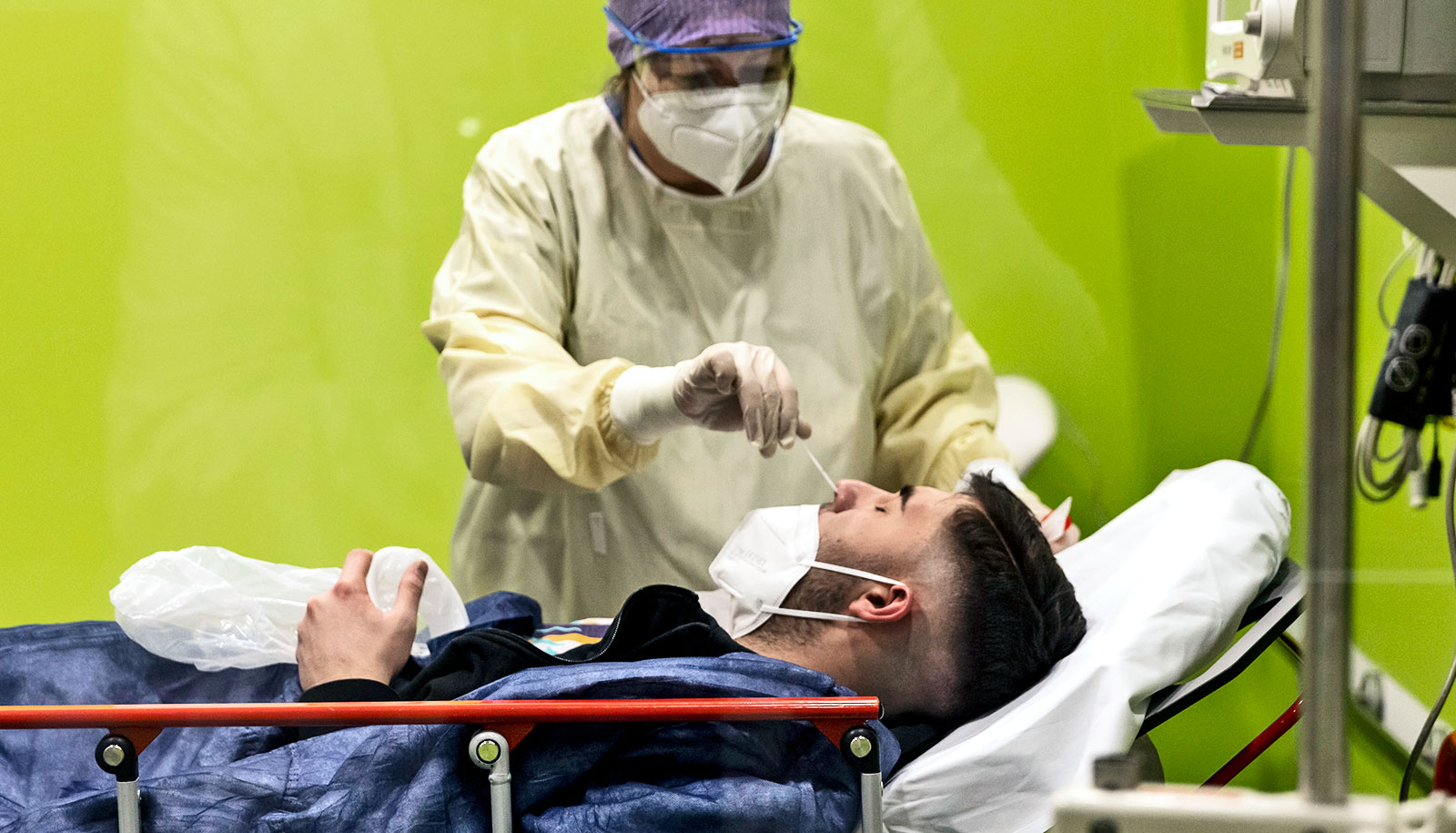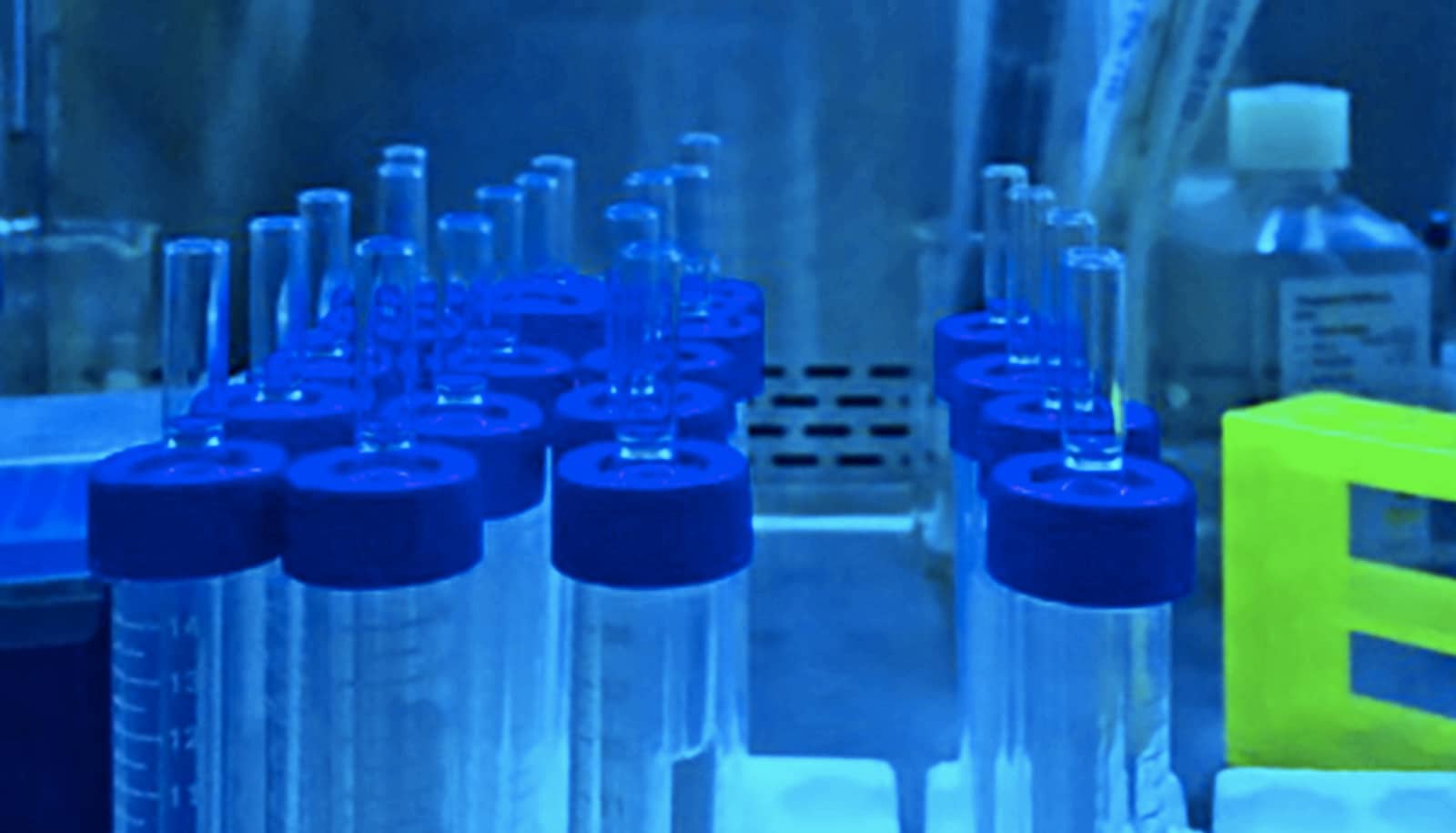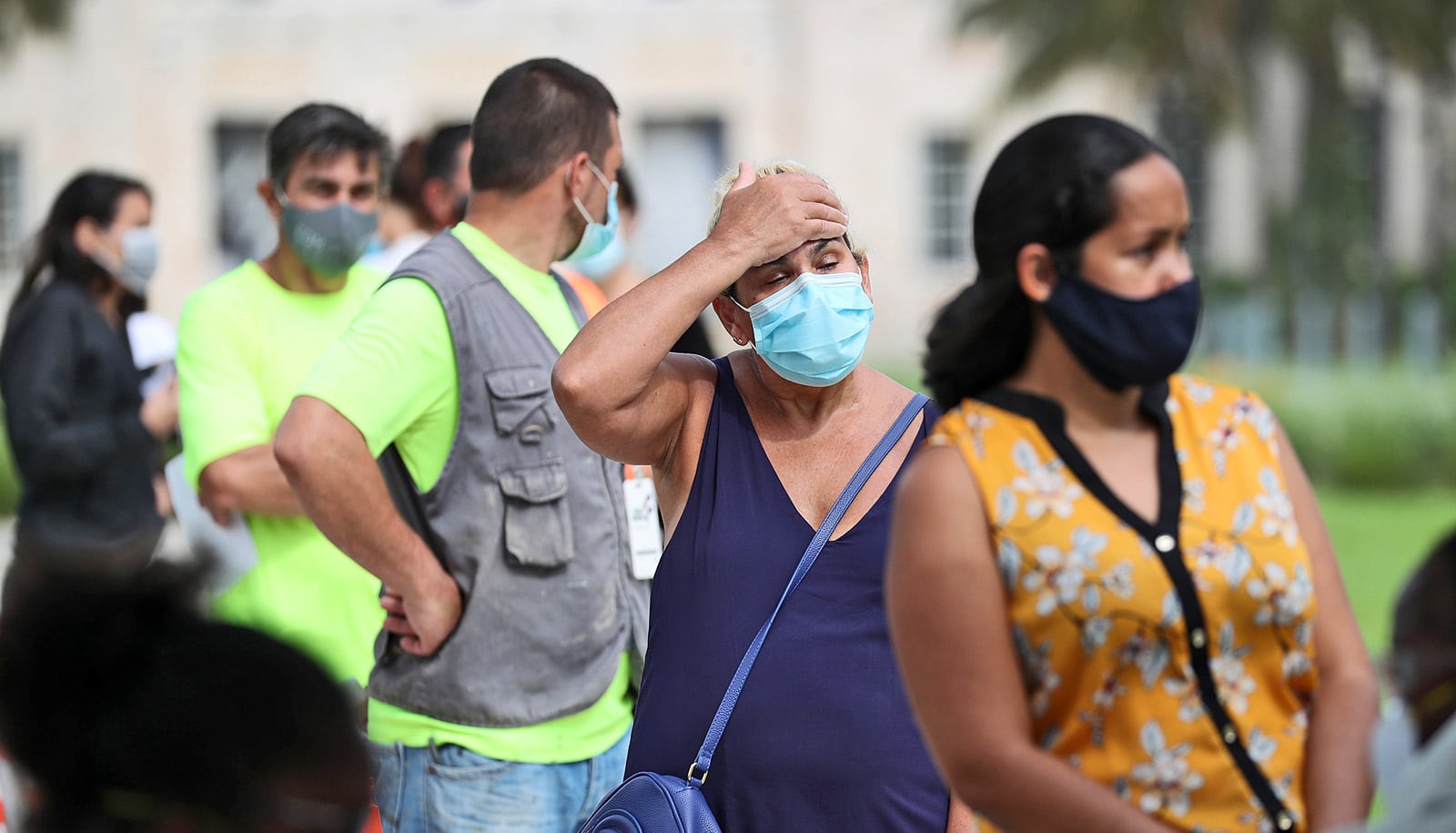A new COVID-19 test detects and identifies specific SARS-CoV-2 variants with 100% accuracy, researchers say.
In a study, the RNA-encoded viral nucleic acid analytic reporter correctly determined the Alpha, Gamma, Delta, Epsilon, and Omicron genetic mutations in nasopharyngeal clinical samples.
This ability could enable health care providers to make personalized treatment decisions for improved patient care.
A paper in the Journal of the American Chemical Society describes the design and validation of the Revealr SARS-CoV-2 genotyping system.
“The COVID-19 pandemic has created an urgent need for individualized diagnostic tools that can recognize the presence of the virus as well as the particular strain,” says corresponding author John Chaput, professor of pharmaceutical sciences at the University of California, Irvine.
“Identifying and triaging patients infected with variants that increase viral transmissibility and reduce vaccine protection is critical to controlling spread of the disease. Revealr goes beyond simple COVID detection methods, such as the commonly used antigen kit, to identify the precise SARS-CoV-2 strain infecting a patient.”
The team analyzed 34 clinical samples collected in early, mid- and late 2021 at the UCI Medical Center from patients experiencing COVID-19 symptoms. The RNA was isolated from the nasopharyngeal swabs, and the correct SARS-CoV-2 variant was identified in every case.
“Although Revealr was developed as a COVID detection assay, the next step is to expand to other respiratory tract infections that share symptoms with COVID-19, like influenza,” Chaput says.
“The ability to distinguish single-point mutation in a DNA or RNA genetic sequence makes it ideally suited for any genotyping, including cancer. Beyond human health, Revealr could find use in forensic or agricultural applications that currently rely on DNA sequencing.”
The researchers have filed a patent application on Revealr genotyping. The Chao Family Comprehensive Cancer Center Experimental Tissue Shared Resource supported the collection of clinical samples.
Source: UC Irvine



